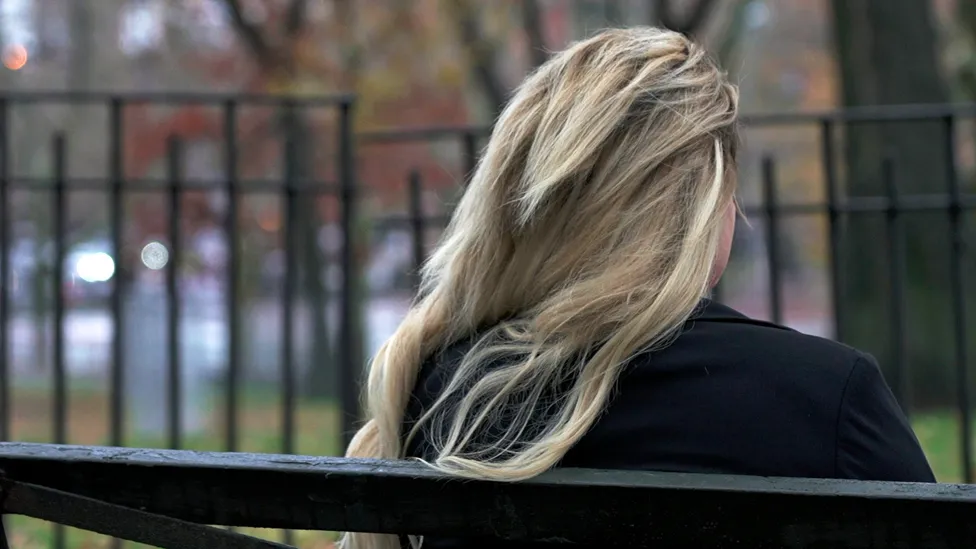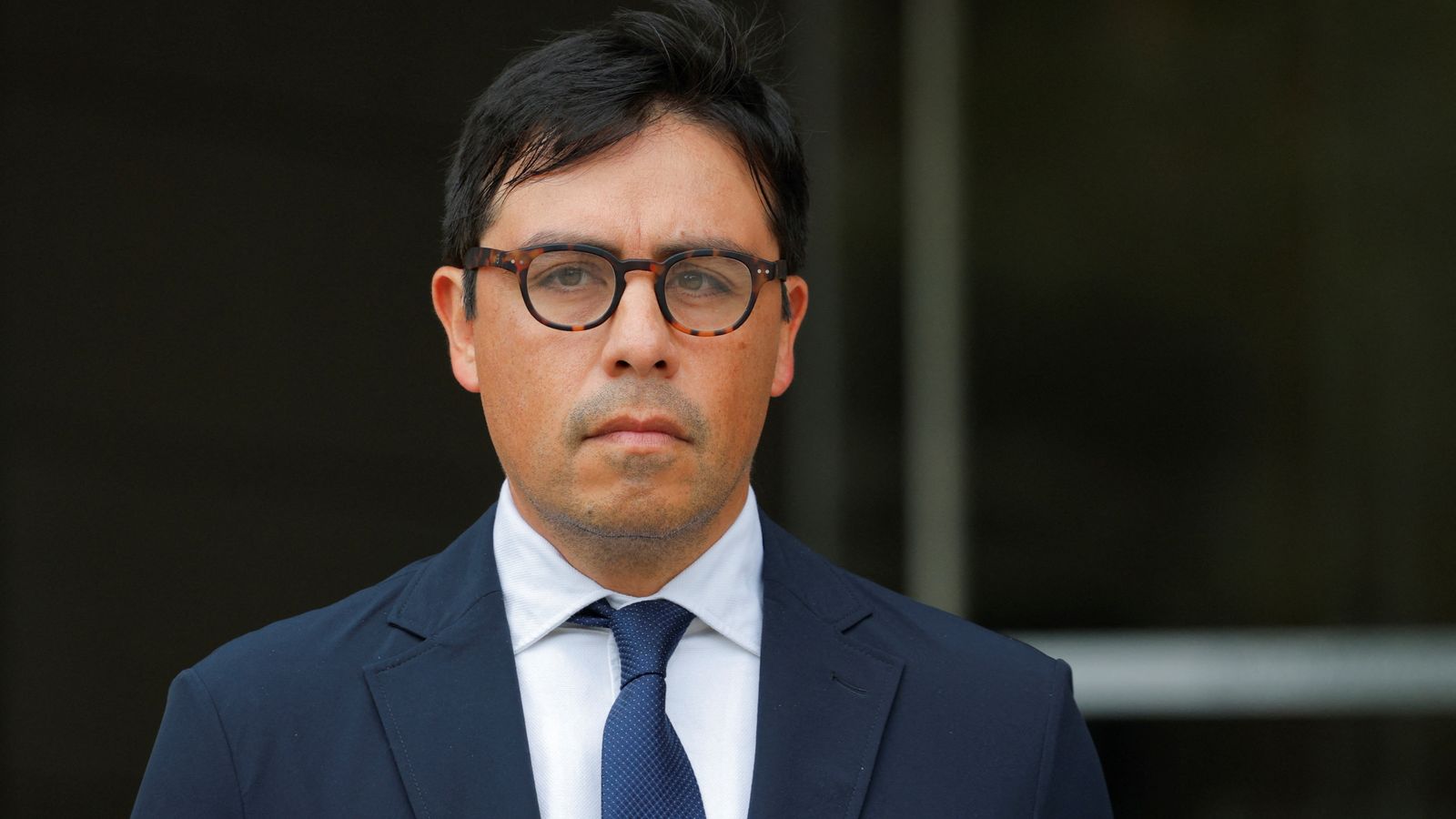Omegle: ‘How I got the dangerous chat site closed down’
"I feel personal pride that no more children will be added to Omegle's body count," says the woman who successfully forced the infamous chat site to shut down.

Speaking for the first time since the platform was taken offline, "Alice" or "A.M." as she's known in court documents, tells the BBC she demanded the website's closure as part of an out-of-court settlement.
Alice (not her real name) says she feels "validated" by the "outpouring of gratitude", as people have been sharing disturbing stories about the site. She has spent years fighting to get compensation, after being randomly paired with a paedophile who made her his digital sex slave.
Alice launched her ground-breaking lawsuit in 2021 around the time her abuser - a father-of-two called Ryan Fordyce - was sentenced to eight years in prison in Canada.
Fordyce had collected 220 images and videos of Alice from the age of 11, carrying out sexual acts under his duress over three years of abuse. He had done the same to five other girls, meeting and grooming three of them on Omegle.
"He was able to manipulate me immediately, and very quickly I was being forced to do things that a child should not have to do," she said during an interview in New York last year for a BBC documentary about Omegle.
Throughout her legal fight, Alice said that she wanted to take the lawsuit to a jury trial where she hoped to get $22m (£15.6m) in compensation. But she now says settling out of court for an undisclosed sum earlier this month was better for her and others.
Popular video chat website shut after abuse claims
"Getting the site shut down was something I couldn't have achieved in court, so I got to tailor the outcome," she says.
"Accomplishing everything we were able to in court and then obtaining this result now - probably years earlier than we could have reached a jury verdict - is something I'll never stop being proud of."
Notorious website
Omegle was launched in 2009 by then 18-year-old Leif Brooks. His site gave users a chance to "talk to strangers" by pairing people for video chats.
The platform had around 73 million visitors a month, according to analysts at website watchers Semrush, with most visitors coming from India, the US, the UK, Mexico and Australia.
There was no age verification and little moderation, so Omegle gained a reputation for being a place for wild and sometimes sexual encounters online.
After years of disturbing cases, Mr Brooks added a warning to the homepage that "predators use this site" - but no other noticeable changes were made.
Omegle's popularity rose during the pandemic lockdowns in 2020, and was the subject of a BBC investigation which revealed that prepubescent boys were found to be explicitly touching themselves in front of strangers. Further BBC reporting showed users were recorded carrying out sexual acts, with predators using the footage to coerce others into activity.
In the last two years, the site has been mentioned in more than 50 cases against paedophiles, and calls from child protection charities like the Internet Watch Foundation (IWF) and the United Nations were ignored.
On Friday, a week after Leif Brooks closed his chat service with a lengthy statement, he added a sentence at the bottom: "I thank A.M. for opening my eyes to the human cost of Omegle."
The acknowledgment with a link to the lawsuit was also part of his settlement agreement with Alice.
Despite the victory, Alice says she will never be able to return to normal life, but she is grateful that "Omegle doesn't have to be on my mind from sunrise to sunset".
Cyber Correspondent Joe Tidy speaks exclusively with child abuse survivor "Alice" and her legal team, as they prepare a case that could have major consequences for social media companies. Then he tracks down Omegle's elusive creator, Leif Brooks.
Omegle's legal team tried and failed several times to get the case dismissed. In his statement, Mr Brooks says the shutting down of his chat site is an attack on internet freedom: "The battle for Omegle has been lost, but the war against the Internet rages on."
Product Liability landmark
Alice's case is a legal landmark, as most social media lawsuits in the US are dismissed under a catch-all protection law called Section 230, which exempts companies from being sued for things that users do on their platforms.
Alice's attorneys used a novel angle of attack called a Product Liability lawsuit, arguing that the site was defective in its design.
"This was the first case where the platform could be held liable for the harm from one user to another and that's largely because of our argument that the product design made the type of harm so foreseeable," says attorney Carrie Goldberg, who led the case with co-counsels Naomi Leeds and Barb Long.
Product Liability cases are a growing trend, with dozens of similar suits launched in the last year against platforms such as Instagram and Snapchat.
No Product Liability case related to a social network has ever made it to a trial, but A.M. versus Omegle came very close, before a settlement was reached.
Child trafficking
Alice's case also sets a new precedent in US law, by holding a social platform liable for an incident of child trafficking.
"As a trafficking venture, we argued, we should not have to prove that Omegle knew ahead of time about this specific predator. Instead, it should be enough that they know and financially benefit from the ubiquity of predation on its platform. The court agreed with our argument," Ms Goldberg says.
In February, the Internet Watch Foundation (IWF) - which removes child sex abuse content from the internet - told the BBC its analysts deal with around 20 Omegle videos a week. It says it welcomes the end of what it calls a "dangerous website".
"Predators used Omegle to contact children to abuse and we saw offenders discussing the use of the site among themselves, viewing it as a hunting ground. Despite our efforts to reach out to them, Omegle did not take the opportunity to work with us to address these issues," says Susie Hargreaves, chief executive of the IWF.
The BBC has asked Omegle's owner and founder Leif Brooks for a recorded interview many times since 2021, but he has refused.
He hasn't spoken publicly since around 2016, when he stopped posting on social media.
As part of the investigation into his website, the BBC visited Mr Brooks at his lakeside home in Florida, from where he ran the website with no other registered staff. He refused to answer any questions, but insisted later in email exchanges that he did pay a third-party company to safeguard his site.
In his closing statement on the Omegle homepage, he said there was "a great deal of moderation behind the scenes, including state-of-the-art AI operating in concert with a wonderful team of human moderators".
Previously Mr Brooks had said that he has worked with child protection groups and handed over information about predators, leading to successful convictions of child abusers.
-bbc







